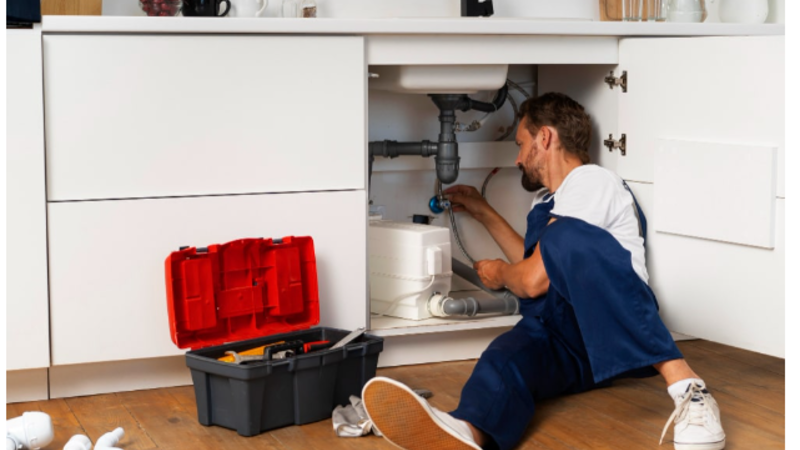Water leaks can wreak havoc on a home, leading to costly repairs and potential health hazards if left unchecked.
In regions like Miami, where the humid climate exacerbates the risk of water damage, early detection is key to preventing extensive damage.
Whether you’re a homeowner, renter, or landlord, knowing how to detect and protect against water leaks is essential for maintaining the integrity of your property and safeguarding your investment.
Understanding the Risks of Water Leaks in Miami
Miami’s tropical climate makes it susceptible to water damage from various sources, including heavy rainfall, high humidity levels, and aging infrastructure. The combination of frequent rainstorms and prolonged periods of humidity creates an environment ripe for mold growth and structural deterioration.
One of the most common causes of water leaks in Miami homes is aging plumbing systems. Over time, pipes can corrode, develop cracks, or become disconnected, leading to leaks that may go unnoticed for extended periods.
Additionally, Miami’s coastal location exposes homes to the risk of flooding during hurricanes and tropical storms, further increasing the likelihood of water intrusion and damage.
Water leak detection in Miami can occur in numerous areas of a home, from plumbing fixtures and appliances to roofing and foundation cracks. Left unaddressed, even minor leaks can escalate into major issues, compromising the structural integrity of the building and creating ideal conditions for mold growth.
Identifying Common Signs of Water Leaks
Detecting water leaks early requires vigilance and an understanding of the warning signs. Some common indicators of water leaks include:
- Unexplained increases in water bills: A sudden spike in your water bill could indicate a hidden leak in your plumbing system. Even small leaks can waste significant amounts of water and drive up your utility costs.
- Visible Water Damage: Stains on walls, ceilings, or floors may suggest a leaky pipe or roof. Discoloration or warping of building materials such as drywall or wood can also indicate water infiltration.
- Musty Odors: Damp, musty smells often accompany water leaks, signaling the presence of mold or mildew. If you notice a persistent odor in certain areas of your home, investigate for signs of water damage.
- Pooling Water: Puddles or standing water in unexpected areas, such as under sinks or behind appliances, indicate an active leak. Pay attention to areas prone to water accumulation, such as basements, crawl spaces, and utility rooms.
- Decreased Water Pressure: A drop in water pressure could be a sign of a leak or blockage in the plumbing system. If multiple fixtures experience reduced pressure simultaneously, it may indicate a larger issue within the water supply system.
Tips for Water Leak Detection and Prevention
Preventing water damage starts with proactive detection and maintenance. Here are some essential tips for identifying and protecting against water leaks in your home:
- Regular Inspections: Conduct routine inspections of your home’s plumbing system, including pipes, faucets, and water-using appliances. Look for signs of corrosion, rust, or moisture accumulation, and promptly address any issues.
Pay particular attention to areas prone to leaks, such as under sinks, around toilets, and behind refrigerators.
- Install Leak Detection Devices: Consider installing water leak detection devices, such as smart water sensors or flow monitoring systems, to alert you to potential leaks before they escalate.
These devices can provide early warnings via smartphone notifications, allowing you to take swift action. Place sensors in strategic locations throughout your home, including near water heaters, washing machines, and sump pumps.
- Monitor Water Usage: Keep track of your water consumption and be mindful of any unexplained increases. Monitoring your water meter regularly can help you detect leaks early and prevent excessive water loss. If you suspect a leak but cannot identify its source, shut off the main water supply to your home and monitor the meter for changes in usage.
- Maintain Your Roof and Gutters: Inspect your roof and gutters regularly for signs of damage or deterioration. Clean gutters and downspouts to ensure proper drainage and prevent water from seeping into your home’s foundation.
Replace missing or damaged shingles promptly, and seal any gaps or cracks in the roof to prevent water infiltration during heavy rainfall or storms.
- Seal Cracks and Gaps: Seal cracks and gaps in walls, windows, and doors to prevent water intrusion during heavy rainfall or storms.
Pay attention to areas prone to water infiltration, such as around plumbing fixtures and utility penetrations. Use caulking or weatherstripping to seal gaps around windows and doors, and apply waterproof sealant to cracks in exterior walls or foundations.
- Know Your Shut-Off Valves: Familiarize yourself with the location of your home’s main water shut-off valve and individual fixture shut-off valves. In the event of a sudden leak or burst pipe, knowing how to shut off the water quickly can minimize damage.
Label shut-off valves for easy identification, and keep necessary tools, such as a wrench or pliers, nearby for emergencies.
- Professional Inspections and Maintenance: Schedule regular inspections and maintenance with licensed plumbers or water damage restoration professionals.
They can identify hidden leaks, assess the condition of your plumbing system, and recommend necessary repairs or upgrades.
Professional maintenance may include pressure testing pipes, inspecting water heaters, and flushing sediment from plumbing lines to improve efficiency and longevity.
Conclusion
Water leaks pose a significant threat to homes in Miami and other regions prone to moisture-related issues.
By staying vigilant and implementing preventive measures, you can detect and protect against water leaks before they escalate into costly disasters.
From conducting regular inspections to investing in leak detection devices, taking proactive steps to safeguard your home’s integrity will save you time, money, and headaches in the long run.
Don’t wait for a water emergency to strike—start protecting your home today. With proper maintenance and awareness, you can enjoy peace of mind knowing that your home is safe from the damaging effects of water leaks.
